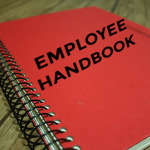How Forced Arbitration and Non-Disclosure Agreements Can Perpetuate Hostile Work Environments
Non-disclosure agreements are part of an arsenal of legal tools that employers have at their disposal to protect their reputation and their bottom line — but those tools often come at the expense of wronged employees, writes Michelle Chen in an article for The Nation.
She also discusses the use of forced arbitration that requires employees to channel their workplace disputes through an extralegal negotiation process, rather than through the courts.
She adds:
According to the National Women’s Law Center (NWLC), both forced arbitration and NDAs have in many workplaces become a standard tactic to preempt workers from taking legal action or disclosing sexual-harassment and -assault charges. These agreements force workers to sign away their rights in exchange for a job, by making them agree to settle future disputes outside the courts through an opaque negotiation process controlled by management and lawyers—effectively sentencing women to silence before they ever step into a courtroom.






